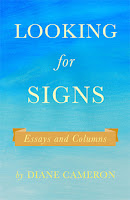On Thursday, many of us will be sitting down to dinner with family or friends and gratitude will be mentioned as we offer a blessing on the meal. It’s appropriate to the day of course; we were taught the Pilgrim’s story of thankfulness for surviving their first difficult year in the New World.
At many of our tables there will be a nod to the formerly religious aspect of the day as someone suggests, “Let’s go around the table and everyone say what they’re grateful for.”
It’s easy at times like this to name good health, career success, and our kid’s accomplishments, but we often forget that some of our best gifts don’t come in pretty wrapping. I suggest that we put a new spin on this tradition. This year ask your guests: What are the mixed blessings in your life this year?
Here are some examples: There was the day you were running late and therefore missed the big accident or traffic jam; or the day you skipped church but when channel surfing heard a speaker that gave you a new outlook on life; Maybe it was the day you got lost in a new part of town but in your wandering found a store that sold exactly what you had been hunting for months. Get the idea?
Then try upping the ante a bit: How about when you got fired but at out-placement you found the work you really want to do? Or maybe the person you wanted to marry said “No”, and broke your heart, but months later you met the one you were supposed to make a life with.
You get the idea, but let’s push it a bit farther. How about the serious illness that knocked you off your feet but having to stay in bed gave you time to recast your life? Or maybe the struggle to accept a more permanent disability made it plain who your friends really were or revealed a talent you didn’t know you had?
Okay, even harder now: What about the death of a loved one that devastated you but one day in the midst of grief you felt something other than pain and realized you were feeling joy like nothing you had ever felt and you knew that you could feel it because the grief had cracked you open.
Similarly, you may have gotten a gift from someone else’s death when you saw just how short life is and you decided to quit with the worry/status/fear and get on with your life.
These mixed blessings are not easy to accept or admit, and sometimes it is just faith itself that is the gift. It can be in the midst of terrible things that we’re forced to develop trust, and then we find, when the crisis is over, that our new beliefs are ours to keep.
Of course the graduate school level of this kind of gratitude is saying “Thank You” even before the good part comes. If you’ve had experience with mixed blessings you begin to know-- even while life is painful or unpleasant-- that there will be meaning in it. And so we say Thank You –purely on faith –even when we’re getting hit hard.
Yes, some of these blessings come in less than Hallmark moments. Maybe it was the painful feedback from a friend that clued you in on the truth about your personality flaws, or the DWI that was humiliating and expensive but it was also what made you look at your problem and change your life. Maybe it was an emotional breakdown that allowed you to put yourself back together in a new and stronger way.
As parents we coach our kids with, “What do you say?” when a gift is given. Can we learn to say that to ourselves when life hands us a package that isn’t very pretty?
So when that, “What are you grateful for?” comes around at your Thanksgiving table this year don’t groan, but dig deep. Name the blessings that came from pain and grief or loss and trouble.
When we can say Thanks for both the good and the bad, for the easy and hard times, then, just like the Pilgrims, we’ll have a real Thanksgiving.
***
More holiday essays in the collection: "Looking for Signs" published by Troy Bookmakers.


